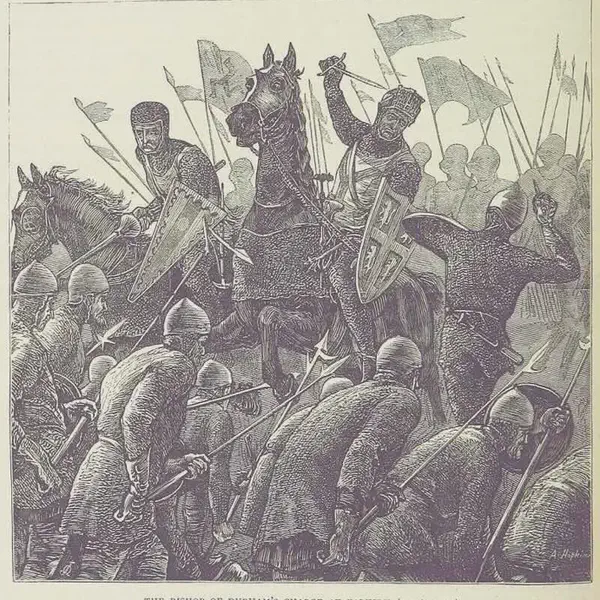
Battle of Falkirk
July 22, 1298
The army of the English King Edward I, using longbows for the first time, defeated the Scots led by Sir William Wallace at Battle of Falkirk.
In 1298 Edward I used Welsh archers at the battle of Falkirk. The longbow was as tall as the man who used it. Arrows fitted with a bodkin (metal tip) could pierce chain mail at 100 paces if they contacted their target perpendicular to the body. The arrow flights were made from grey goose feathers. Edward I had been the first to experiment with the longbow in warfare. Edward I also came to Falkirk with a new battle tactic. He decided from his experience in Wales, to employ the Welsh archers. The new English tactic of using the Welsh longbow in mass units to shower deadly arrows at great range at the enemy finally took its toll on the Scots.
William Wallace had just adopted a new tactic for fighting heavy cavalry attack. The Scots had lighthorsemen , but not as many as the English heavy mounted knights, Wallace was outnumbered nearly 6 to 1. Wallaces new tactic was long (12 foot) speared units of massed infantry, formed into box or oval shapes. They fought by using the reach of the spears to impale the charging English knights (theyre horses actually). It was devastatingly effective. They were called Schiltrons pronounced Skil-trons.
A schiltron or schiltrom is a group of men crouching shoulder-to-shoulder under-behind shields while holding their pikes (long, spear-like weapons) slanted outwards. This defensive formation, similar to the classical Roman testudo (tortoise), underwent further development by the Scots to meet the threat posed by the feudal English knights in the Middle Ages.
Wallace survived, and Edward was not able to follow up on his victory: lack of supplies forced him to return to England. Wallaces rebellion, however, was broken by the defeat at Falkirk. The Scottish struggle for independence ultimately passed to Robert the Bruce.